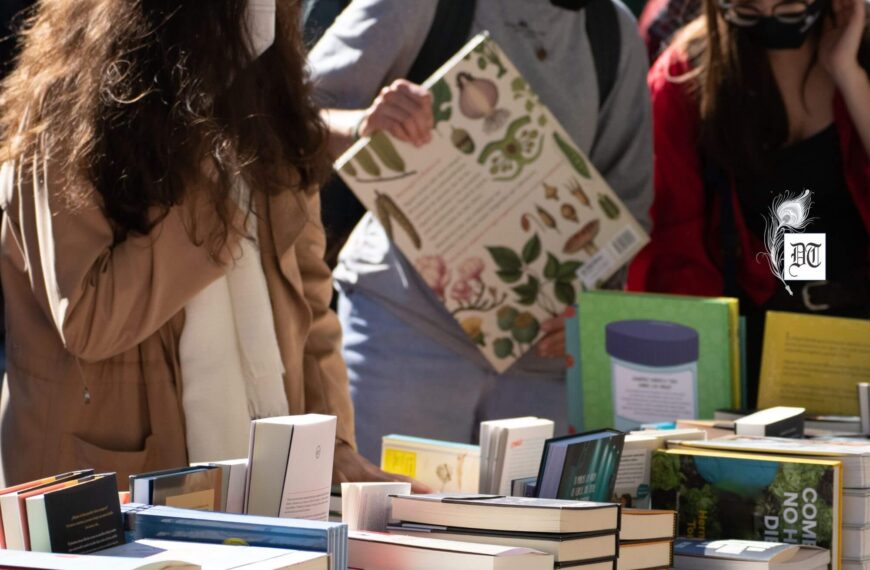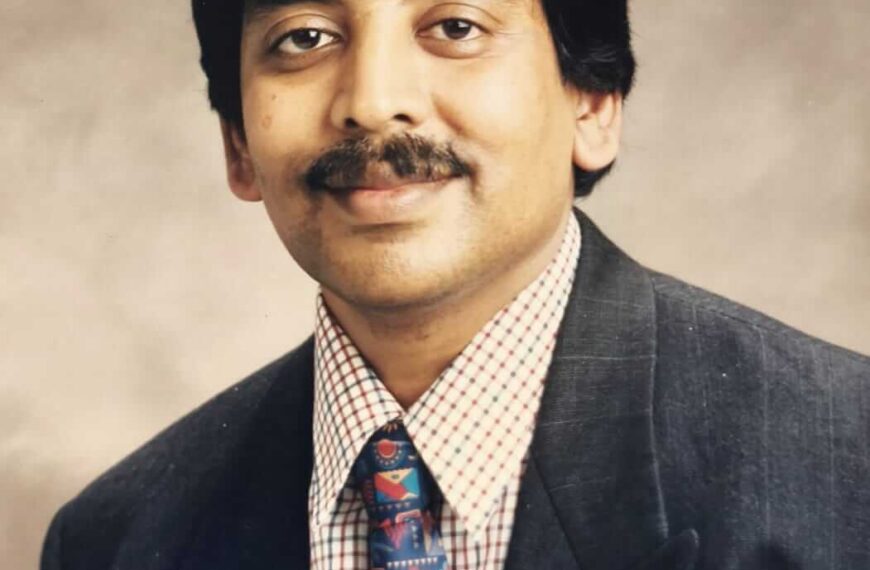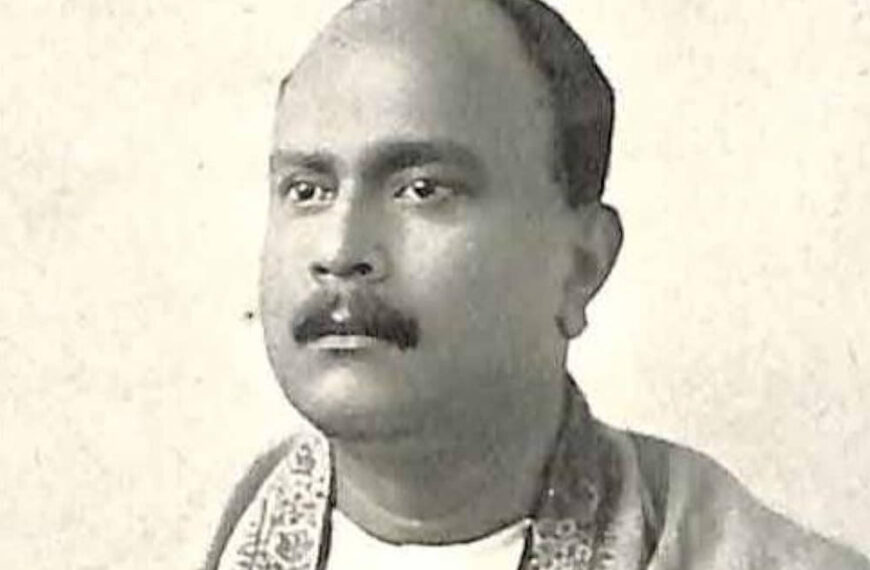“You gain strength, courage, and confidence by every experience in which you really stop to look fear in the face. You must do the thing you think you cannot do.” This quote by Roosevelt echoed the emotion which reigned while interviewing the French author Charles Dantzig. Archana interviewed the renowned novelist, poet, essayist, and editor, in the regular column, exclusively for Different Truths.
People who think are fearless and courageous. Their honesty gets expounded in their written expressions. A writer whose works bear such intriguing titles that there was a lot of curiosity what lies behind these words. Charles Dantzig is an acclaimed novelist, poet, essayist and an editor. There is a long list of accolades attached to his contributions towards writings. As the head of Grasset Publishing House, he is in-charge of the projects Le Courage and Le Cahier Rogues. His views on homosexuality, gay rights speaks of the courage he possesses to express himself without any inhibitions. His writings have a lucidity, honesty. To quote him, in love stories the cruelest roles is that of confidant. This appears in his book, In a Plane to Carcass. Happiness invades, it is an occupation. Cheerfulness is a distraction. Or Mirrors dream we admire which we see in the poem, The Swimmers.
A writer whose works bear such intriguing titles that there was a lot of curiosity what lies behind these words. Charles Dantzig is an acclaimed novelist, poet, essayist and an editor. There is a long list of accolades attached to his contributions towards writings. As the head of Grasset Publishing House, he is in-charge of the projects Le Courage and Le Cahier Rogues. His views on homosexuality, gay rights speaks of the courage he possesses to express himself without any inhibitions. His writings have a lucidity, honesty. To quote him, in love stories the cruelest roles is that of confidant. This appears in his book, In a Plane to Carcass. Happiness invades, it is an occupation. Cheerfulness is a distraction. Or Mirrors dream we admire which we see in the poem, The Swimmers.
Isn’t it interesting that he made an attempt to write essays like, About Masterpieces, Why read? Capricious Encyclopaedia of Everything and Nothing, There is no Indochina.
If we speak of novels the list goes on as, In a Plane to Carcass, My name is Francois, Our lives hasty, A Film of Love. He chose and continues to write poems too like Swimmers, La Diva with long eyelashes, What are the Planes? Remembering the Lang haul. Each one has a unique theme. His each creation is unique and can be termed as an unexpected literary object. The more I read the keener I was to meet him and have a medley of thoughts unravel his much critical acclaim about Populism in Literature.
Charles Dantzig’s literary tour to India was organised by French Embassy and Institut Francois India, the cultural outfit of Embassy. He chose to spend few days in Delhi after attending the Mumbai Literature Festival. The evening was slated for an event called Literary Conversation with Taslima Nasreen. Here’s the interview with Charles Dantzig, at Hotel Imperial, Janpath, New Delhi, in December 2016.
![]() Archana: How did writing to happen to you?
Archana: How did writing to happen to you?
![]() Charles: I read a lot as a kid, have been reading since the age of six and started composing poems. My poetic compositions found the way in the school magazines as early as when I was seven years old. They were appreciated but somehow I never liked them. I was born into a family where all were teachers of Medicine and was expected to fall in the same league but I gravitated towards law. The decision primarily arose out of a choice to give instructions diplomatically.
Charles: I read a lot as a kid, have been reading since the age of six and started composing poems. My poetic compositions found the way in the school magazines as early as when I was seven years old. They were appreciated but somehow I never liked them. I was born into a family where all were teachers of Medicine and was expected to fall in the same league but I gravitated towards law. The decision primarily arose out of a choice to give instructions diplomatically.
![]() Archana: You appear as an honest and courageous writer, are all writers courageous enough?
Archana: You appear as an honest and courageous writer, are all writers courageous enough?
![]() Charles: Writing is a kind of struggle where internal strife seeks manifestation in form of words. Yes, it takes a lot of courage to write. Writers have that special courageous voice to stand up and fight for others. Here I would like to mention, Emile Zola a French writer who put his career at stake for the cause of a Jewish soldier, Alfred Dreyfus. Entire France was against him but he waged a fight against the wrong doing. Again it was James Faulkner a writer who first made mention of mentally challenged in 1931 in his writings. Literature is empowering when it brings what life wants to hide.
Charles: Writing is a kind of struggle where internal strife seeks manifestation in form of words. Yes, it takes a lot of courage to write. Writers have that special courageous voice to stand up and fight for others. Here I would like to mention, Emile Zola a French writer who put his career at stake for the cause of a Jewish soldier, Alfred Dreyfus. Entire France was against him but he waged a fight against the wrong doing. Again it was James Faulkner a writer who first made mention of mentally challenged in 1931 in his writings. Literature is empowering when it brings what life wants to hide.
![]() Archana: You appear as a strong protagonist in the fight against homosexuality and champion gay rights, please speak something about this?
Archana: You appear as a strong protagonist in the fight against homosexuality and champion gay rights, please speak something about this?
![]() Charles: I am there to fight for anything which is a threat to human values. European society which appears modern to outside world is actually very superstitious, conservative and traditional. Many gay people are killed in France and I am against any such killings. I started an opinion poll in 2013 against homophobia which got the support from many. I continue to fight for them.
Charles: I am there to fight for anything which is a threat to human values. European society which appears modern to outside world is actually very superstitious, conservative and traditional. Many gay people are killed in France and I am against any such killings. I started an opinion poll in 2013 against homophobia which got the support from many. I continue to fight for them.
![]() Archana: Why is An Egoist Dictionary of French Literature, published, in 2005, considered to be a masterpiece, regarded as the mad project of a writer?
Archana: Why is An Egoist Dictionary of French Literature, published, in 2005, considered to be a masterpiece, regarded as the mad project of a writer?
![]() Charles: Literature is something which is felt from within and I have portrayed my personal and honest views about Literature in this book. I always had been passionate about Literature and this was an attempt to write an original Literature Dictionary. It’s a thousand page book, labour of several years of work. Literature survives because of people like me who are brutally honest.
Charles: Literature is something which is felt from within and I have portrayed my personal and honest views about Literature in this book. I always had been passionate about Literature and this was an attempt to write an original Literature Dictionary. It’s a thousand page book, labour of several years of work. Literature survives because of people like me who are brutally honest.
![]() Archana: How would you explain about your writing style to readers who are yet aware of style Dantzig?
Archana: How would you explain about your writing style to readers who are yet aware of style Dantzig?
![]() Charles: I think my readers are the best ones to answer this but I primarily follow the conversational form of writing. Reading is the best form of the conversation where fluidity flows and keeps you enthralled. I also like my writings to be witty. Writing is a kind of intimate confession which can be fictional but it is primarily a literary object.
Charles: I think my readers are the best ones to answer this but I primarily follow the conversational form of writing. Reading is the best form of the conversation where fluidity flows and keeps you enthralled. I also like my writings to be witty. Writing is a kind of intimate confession which can be fictional but it is primarily a literary object.
![]() Archana: I read somewhere that you describe yourself as an Enemy of Realism & Literature isn’t the reproduction of Life, How?
Archana: I read somewhere that you describe yourself as an Enemy of Realism & Literature isn’t the reproduction of Life, How?
![]() Charles: Yes because I consider reality is boring but literature shouldn’t be. Each reality is legitimate and the things I write are exclusive to be understood by readers who are intelligent. Realism should not be mistaken for idealism. Reproduction of Literature is similar to its contamination. We will not have all the answers and all the questions are not often enough. I am not saying I am right, I am saying I am thinking.
Charles: Yes because I consider reality is boring but literature shouldn’t be. Each reality is legitimate and the things I write are exclusive to be understood by readers who are intelligent. Realism should not be mistaken for idealism. Reproduction of Literature is similar to its contamination. We will not have all the answers and all the questions are not often enough. I am not saying I am right, I am saying I am thinking.
![]() Archana: Tell us something about this program, Professional Secrecy on French Culture.
Archana: Tell us something about this program, Professional Secrecy on French Culture.
![]() Charles: It’s a weekly program on French Radio on the way how cultural things are conveyed into society, let’s understand the way how to frame a painting or how a certain note is played. Archana: Do you consider planes to be technological marvels is this the idea which ran behind the poem what are the planes?
Charles: It’s a weekly program on French Radio on the way how cultural things are conveyed into society, let’s understand the way how to frame a painting or how a certain note is played. Archana: Do you consider planes to be technological marvels is this the idea which ran behind the poem what are the planes?
![]() Archana: Do you consider planes to be technological marvels is this the idea which ran behind the poem what are the planes?
Archana: Do you consider planes to be technological marvels is this the idea which ran behind the poem what are the planes?
![]() Charles: Oh I hate flying but I love planes! There is a morality, which we attach to flying and I seem to suffer from Icarus complex. As per Greek mythology, Icarus was the son of master craftsman Daedalus. Icarus was elated to see his father’s wonderful creation and tries to escape by wings made of feathers and wax. His father warned him on how to fly but as was destined he chose to ignore his father’s advice and his wings melted and he fell into the sea. The poem is on the destruction of Twin towers in the USA by the planes.
Charles: Oh I hate flying but I love planes! There is a morality, which we attach to flying and I seem to suffer from Icarus complex. As per Greek mythology, Icarus was the son of master craftsman Daedalus. Icarus was elated to see his father’s wonderful creation and tries to escape by wings made of feathers and wax. His father warned him on how to fly but as was destined he chose to ignore his father’s advice and his wings melted and he fell into the sea. The poem is on the destruction of Twin towers in the USA by the planes.
![]() Archana: How was the Mumbai Literature Festival and how do you see the writing trends changing worldwide?
Archana: How was the Mumbai Literature Festival and how do you see the writing trends changing worldwide?
![]() Charles: Literature Festival was fantastic, this is my first visit to India and I enjoyed being here. The festival was held in a cinema studio, which gave it a great feel. I found the culture here to be very cosmopolitan. I have always known Indians as great readers. The interaction with many co-authors gave the feel that worldwide art fraternity is coming closer. However, as a writer, my job isn’t to pass judgment on anyone’s writing as we writers continue to live in our assaulted fortress.
Charles: Literature Festival was fantastic, this is my first visit to India and I enjoyed being here. The festival was held in a cinema studio, which gave it a great feel. I found the culture here to be very cosmopolitan. I have always known Indians as great readers. The interaction with many co-authors gave the feel that worldwide art fraternity is coming closer. However, as a writer, my job isn’t to pass judgment on anyone’s writing as we writers continue to live in our assaulted fortress.
©Archana Sharma
Photos by the author.
#Writer #Author #FrenchWriter #FrenchEmbassy #CharlesDantzig #Interview #DifferentTruths




 By
By
 By
By
 By
By